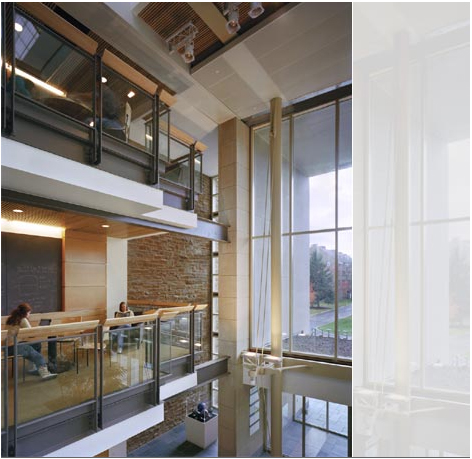Summer Research
* Student(s): Andrew Vermilyea
Advisor: Michael McCormick
Title: Role of Dichlorocarbene Reduction During Carbon Tetrachloride Transformation on the Surface of Magnetite
Abstract:
Biogenic magnetite has previously been shown to play a significant role in the abiotic dechlorination of carbon tetrachloride (CT), a common groundwater contaminant. The least toxic product of this CT transformation is methane. Prior investigations determined that a dichlorocarbene (:CCl2) intermediate is involved in this process. This study investigated the origin of the protons that replace the chlorine substituents on the (:CCl2) intermediate resulting in methane formation. Using deuterated water and a variety of organic and inorganic buffers we determined that the majority of the protons in the methane product originate from solution. This suggests that the intermediate pathway resulting in methane formation involves nucleophilic species that readily add D+ rather than radical species that abstract atomic hydrogen from labile organic sources. Trapping experiments are underway to better characterize the intermediate species that are formed after dichlorcarbene in the methane formation pathway. A better understanding of this transformation mechanism may assist in the development of improved remediation technologies for application at CT contaminated field sites.
AV's research supported by the Ralph E. Hansmann Science Student Support Fund.


